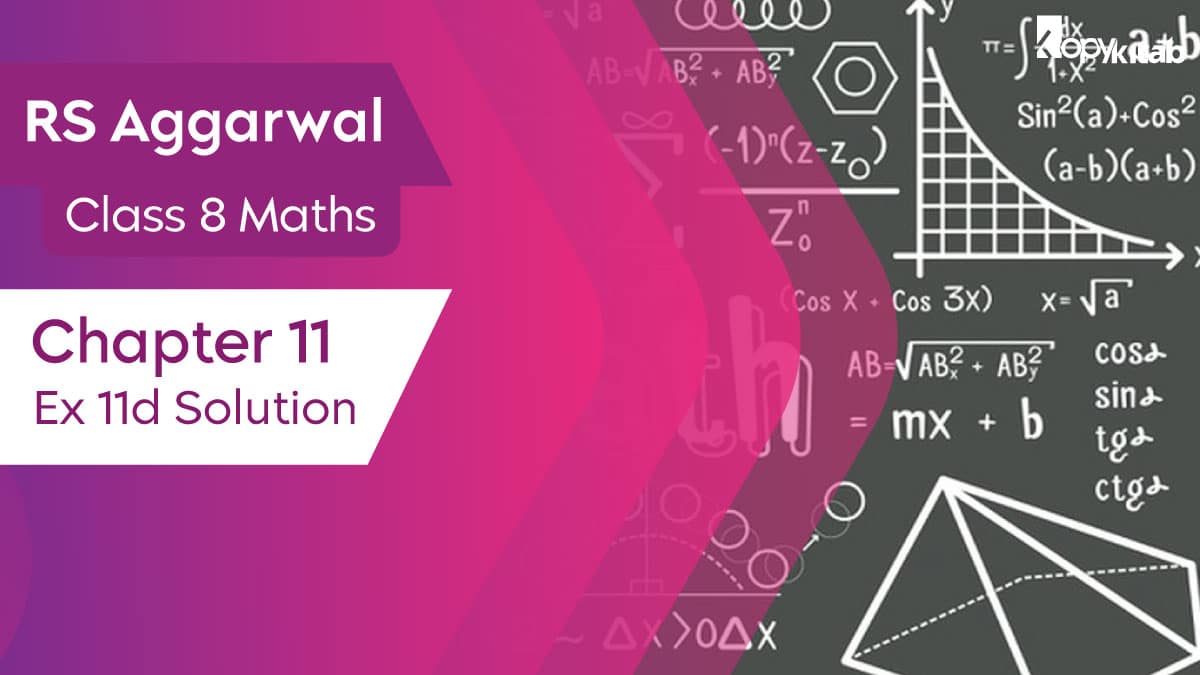
RS Aggarwal Class 8 Maths Chapter 11 Ex 11d Solutions: In this exercise, the students will learn how the formulae for computing amount & compound interest are used to calculate the growth of the population. They will also study depreciation. These solutions assist the students to get to know about the exam pattern so as to acquire higher exams. The solutions are solved with shortcut techniques that make learning easy for the students.
They can attain good marks in the Class 8th Maths final exams by practicing these solutions regularly. They can easily download these solutions in PDF format. These solutions also enable the students in their daily homework routine. These solutions include well-researched information about each concept that enables the students to understand each concept appropriately. Each topic of this exercise is solved in an easy language that enables the students to study & revise each topic with maximum accuracy.
Access RS Aggarwal Class 8 Maths Chapter 11 Solutions PDF
Download RS Aggarwal Class 8 Maths Chapter 11 Ex 11d Solutions
RS Aggarwal Class 8 Maths Chapter 11 Ex 11d Solutions
Important Definition for RS Aggarwal Class 8 Maths Chapter 11 Ex 11d Solutions
The students can easily download RS Aggarwal Class 8 Maths Chapter 11 Ex 11d Solutions in the PDF format and access them at any time. These solutions also ease out the exam preparation level and enable the students to achieve excellent ranks in the exams.
- Formula for Population Growth
Formula 1: Assume P is the population of a city at the starting of the specific year and the population grows at a constant rate R% per annum, then:
Population after n years = P (1 + R/100)n
Formula 2: Assume P is the population of a city or a town at the starting of the specific year. If the population grows at the rate of R1% during the first year and R2% during the second year, then: Population after 2 years = P (1 + R1/100) x P (1 + R2/100)
Formula 3: Assume P is the population a city or a town at the starting of the specific year. If the population decrease at the rate of R% per annum, then:
Population after n years = P (1 + R/100)n
- Depreciation
The relative decrease in the value of a machine over a period of time is its depreciation. Depreciation per unit of time provides the rate of depreciation. The value at any time is known as the depreciated value.
- Formula for Depreciation
1st Formula: If V0 is the value of an item at a certain time & R% per annum is the rate of depreciation, then the value of Vn at the end of a year is: Vn = V0 (1−R/100)n
2nd Formula: If V0 is the value of an item at a certain time & the rate of depreciation is R1% for the first n1 years, R2% for next n2 years & so on, and Rk% for the last nk years the value at the end of n1 + n2 +………..+ nk years is:
Vn = V0 (1−R1/100)n1 x (1−R2/100)n2 ……… x (1−R2/100)nk
Know more at the official website.
